ENDOMIX – Understanding how endocrine disruptors and chemical mixtures of concern target the immune system to trigger or perpetuate disease (Horizon Europe)
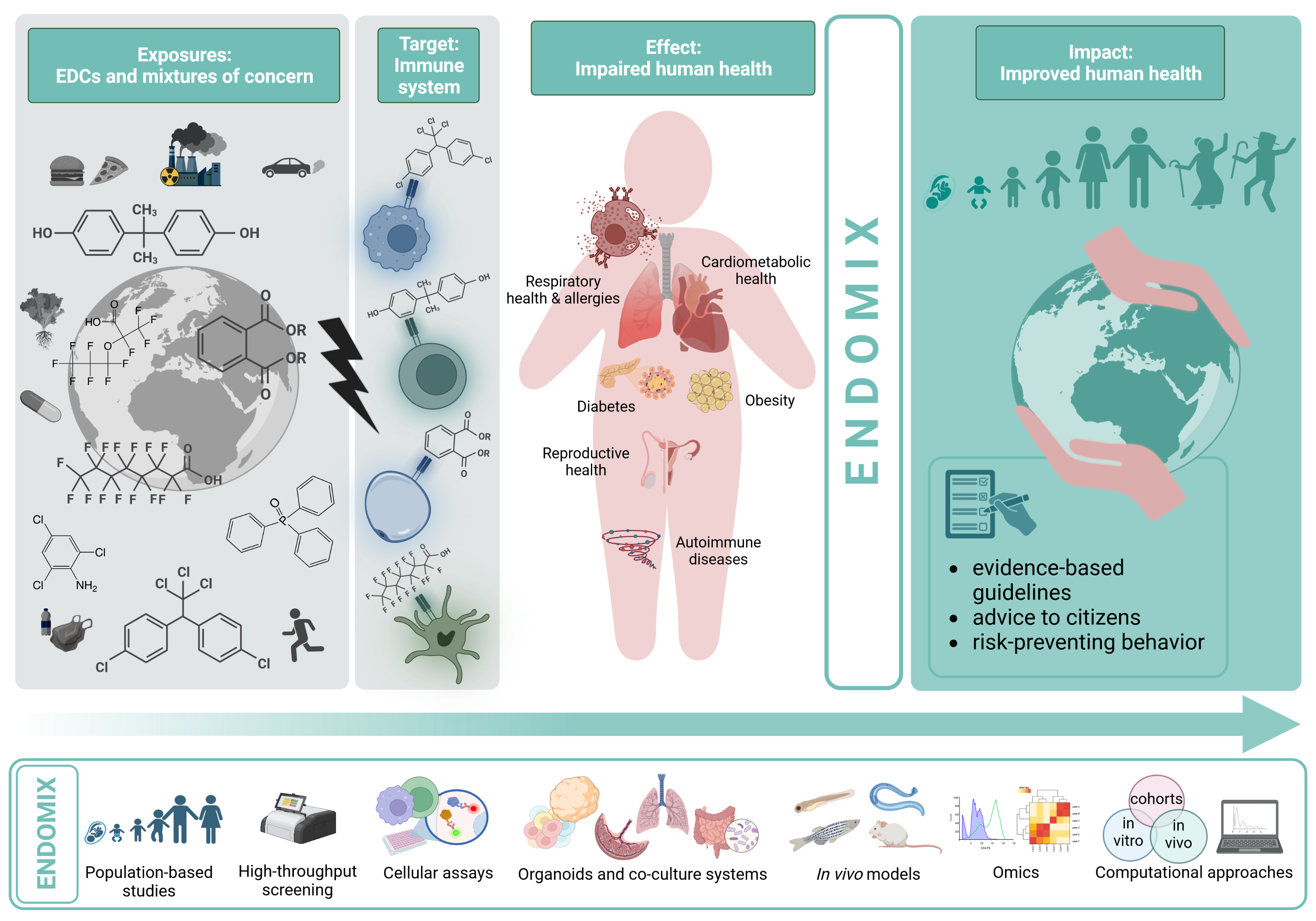
The ENDOMIX project addresses the urgent need to understand the true impact of endocrine disrupting chemicals (EDCs) on human health in order to inform regulators and advise citizens. ENDOMIX will tackle this challenge by revealing associations and causality between EDCs and adverse health outcomes by focusing on exposure to multiple EDCs during life course including windows of susceptibility and making use of already existing robust data from multiple European cohorts. Modelling how real-life EDC mixtures target the immune system to initiate, trigger or perpetuate diseases combined with high throughput bioassays will reveal health-relevant mixtures of concern whose impact will be studied using ground-breaking methodology while delivering valuable information on mechanistic pathways and transgenerational impact of exposure to EDCs. This strategy will lead to the identification of biomarkers and patterns of exposure that are easy to measure, available for big sample sizes, and indicative of health endpoints. Finally, we will provide evidence synthesis of in vitro, in silico and in vivo data for strengthening causal inference and use a weight of evidence approach to generate artificial intelligence-assisted knowledge graphs. This unique loop approach with a novel focus on the immune system as EDC target is only made possible by the consortium’s interdisciplinary expertise and extensive access to existing data and biosamples as well as a meticulous study design. The knowledge generated by this consortium will be disseminated to the scientific community provide a thorough new evidence base for policy making and will reach citizens of all ages to raise awareness about the risks of EDC exposure and promote health-preserving behaviour. Hence, the outcomes of ENDOMIX do not only provide essential new knowledge and understanding but also and have far-reaching implications for the health and well-being of society, including significant savings in European health care systems.
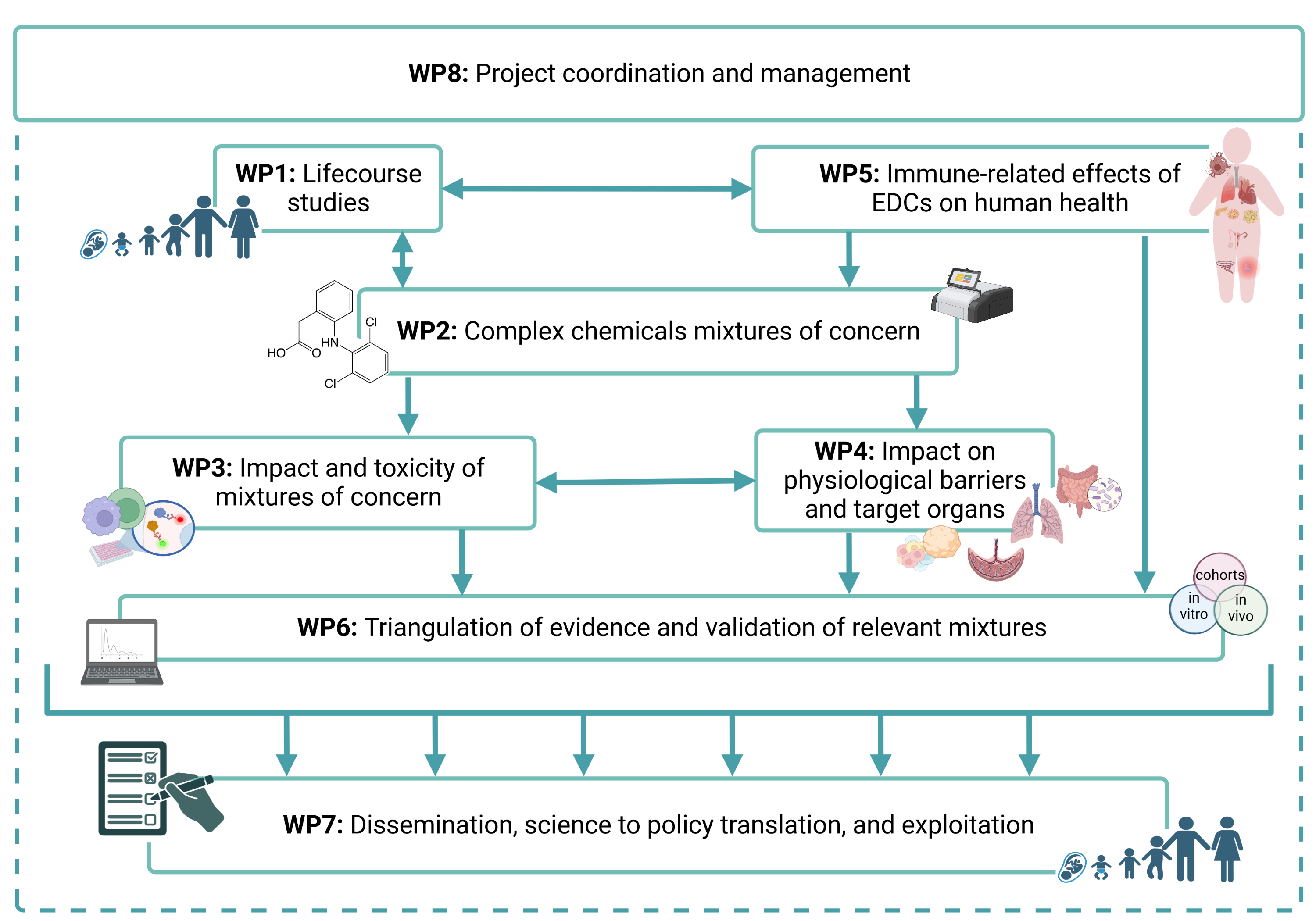
More information about ENDOMIX:
Contributing UFZ scientists
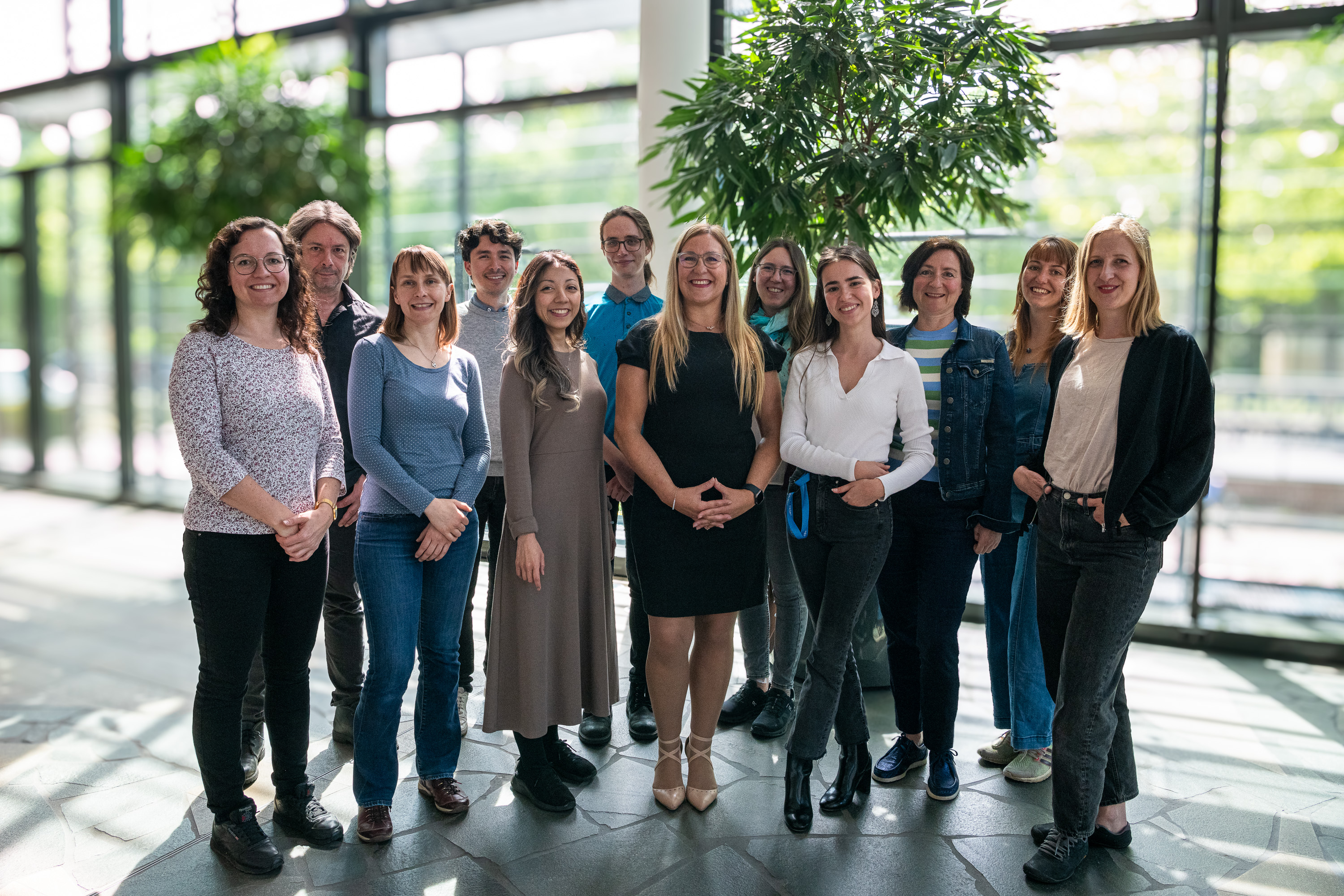
Photo: Sebastian Wiedling/UFZ
Prof. Ana C. Zenclussen is an expert in feto-maternal immune communication. She introduced the importance of adaptive immunity towards paternal antigens during pregnancy, first highlighting the role of regulatory T cells for successful pregnancy in 2005. Ana Zenclussen obtained her PhD in Immunology from Universidad de Buenos Aires in Argentina. She was Alexander-von-Humboldt fellow at the Charité in Berlin and Professor for Experimental Obstetrics and Immunology at the Medical Faculty of the Otto-von-Guericke University in Magdeburg, before joining the UFZ in 2020, where she is Head of the Department of Environmental Immunology. She also holds a Professorship for Environmental Pediatric Immunology at the Medical Faculty of the University of Leipzig. Ana Zenclussen coordinates ENDOMIX and the first 2 years of the cluster ENKORE. Within her portfolio, she studies mechanisms of immune tolerance during pregnancy, pregnancy complications and placenta physiology. She has dedicated the last few years in understanding how endocrine disruptors impact pregnancy and fetal development and also focusing on long-term effects on the offspring.
 Photo: André Künzelmann/UFZ
Photo: André Künzelmann/UFZ
Prof. Beate Escher is internationally recognized for her work on chemical pollution in the environment. She pioneered the field of water quality assessment by addressing complex mixtures of chemical pollutants using in vitro bioassays. Beate Escher obtained her PhD from the Swiss Federal Institute of Technology ETH, Zürich, Switzerland and is head of the Department of Cell Toxicology at the Helmholtz Centre for Environmental Research in Leipzig, Germany, and professor at the Eberhard Karls University Tübingen, Germany. She is also lecturer at ETHZ, Switzerland, holds an honorary professorship at the University of Queensland and an adjunct professorship at Griffith University, Australia. She serves on the Board of Reviewing Editors at Science. In 2023 she won the Outstanding Achievements in Environmental Science and Technology Award by ES&T and ES&T Letters and the ACS Division of Environmental Chemistry. Escher’s research focuses on developing scientifically sound assessment tools and methodologies for risk assessment of mixtures of chemicals in the environment and in people. She is working on unbiased extraction methods to capture the entire exposome with chemical analytical and effect-based tools. Another research area are high-throughput in vitro bioassays and quantitative in vitro to in vivo extrapolation (QIVIVE) for risk assessment of chemicals.
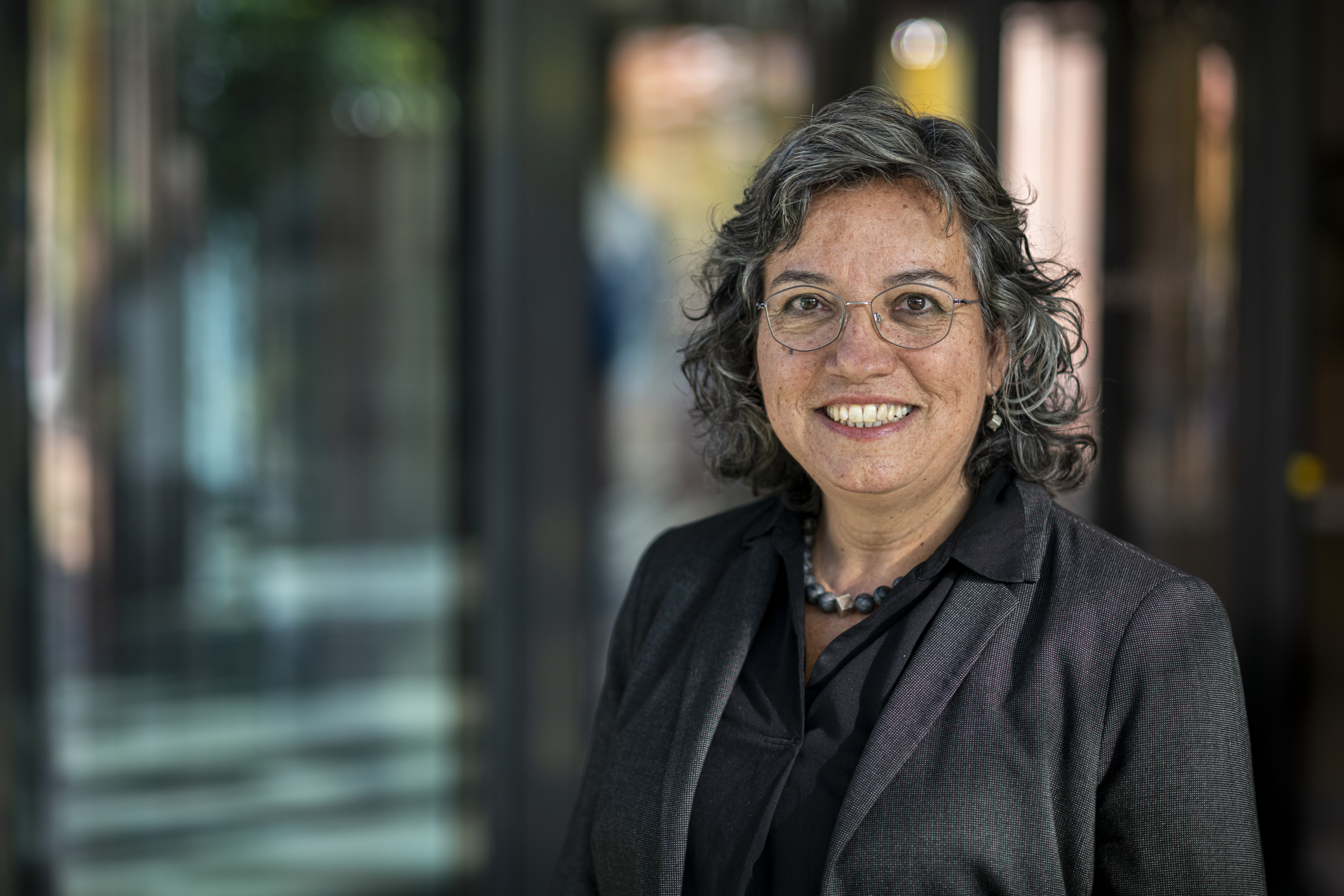 Photo: Sebastian Wiedling/UFZ
Photo: Sebastian Wiedling/UFZ
Dr. Anne Schumacher is Senior Researcher in the Department of Environmental Immunology at the Helmholtz-Centre for Environmental Research leading the working group “Perinatal Immunology” at the Saxonian Incubator for Clinical Translation. During her scientific career, she gained major experience in the fields of immune-driven reproductive complications and other immune-related disorders. Currently, her research is at the interface between environmental chemicals, immunology and reproduction aiming to uncover immunotoxic and reprotoxic impacts of environmental chemicals and support regulatory authorities in their decisions on chemical regulations. She envisions a less-toxic environment enabling a healthy future of wildlife animals and human beings.
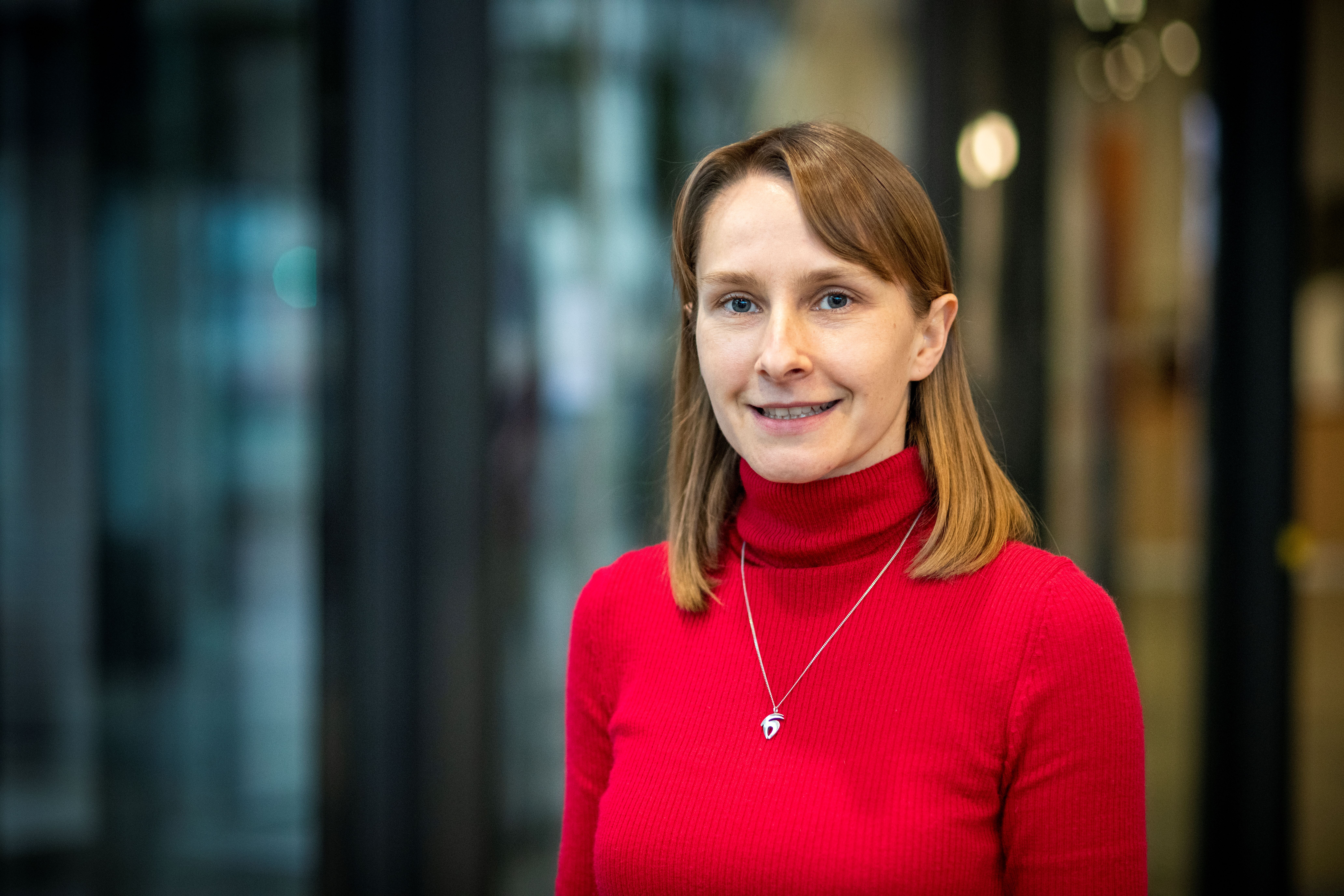 Photo: Sebastian Wiedling/UFZ
Photo: Sebastian Wiedling/UFZ
Dr. Nicole Meyer is a Group Leader, Scientist, and Topic Coordinator in the Department of Environmental Immunology at the Helmholtz Centre for Environmental Research (UFZ) Leipzig, specialized in environmental and reproductive immunology. Her research focuses on the influence of environmental chemicals on the innate immune system and consequences for vascular diseases and allergies. She concurrently leads the "In vivo und in vitro Imaging" platform and manages projects like "EmPreChem," aimed at empowering pregnant women through app-based awareness of environmental chemical risks. Before joining the UFZ, she was a Postdoctoral Researcher at Otto-von-Guericke University (OVGU) Magdeburg. There she worked on projects investigating the influence of environmental estrogens on the immune response during pregnancy. Dr. Meyer earned her Ph.D. from OVGU Magdeburg, focusing on the involvement of uterine mast cells and natural killer cells in successful pregnancies. She pursued her Diploma in Biology at the Technical University of Dresden.
Dr. Nicole Meyer's commitment to environmental research, coupled with her vision of effectively communicating scientific findings to society, has the overarching goal of strengthening the health of future generations.
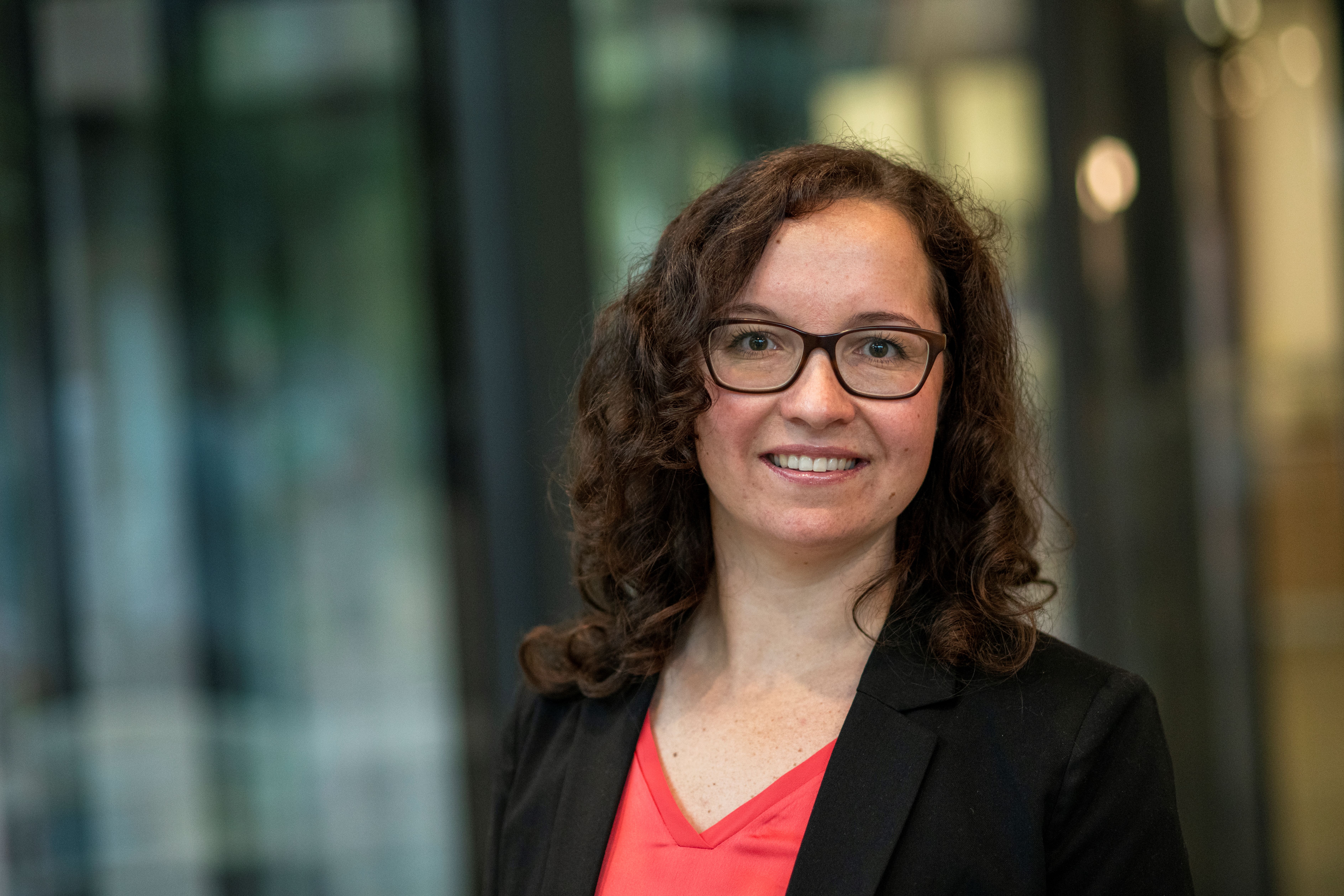 Photo: Sebastian Wiedling/UFZ
Photo: Sebastian Wiedling/UFZ
PD Dr. Tobias Polte leads a research group in the Department of Environmental Immunology that studies the influence of maternal exposures on disease development in the offspring. After completing his doctorate in pharmacology at the Martin Luther University in Halle/Saale, he worked as a scholarship holder of the German Research Foundation at the University of Bath (UK) and the Stanford Medical School. He then returned as a postdoc at the children's clinic at the University Medical Center in Halle/Saale and later recruited a junior research group for the Helmholtz Centre for Environmental Research – UFZ and the University of Leipzig. He served as deputy and acting department head in the Department of Environmental Immunology. His current research focus is on the role of environmental pollutants such as EDCs as risk factors in the development of immune diseases like allergic asthma but also possible effects on metabolism or behaviour across generations using various mouse disease models.
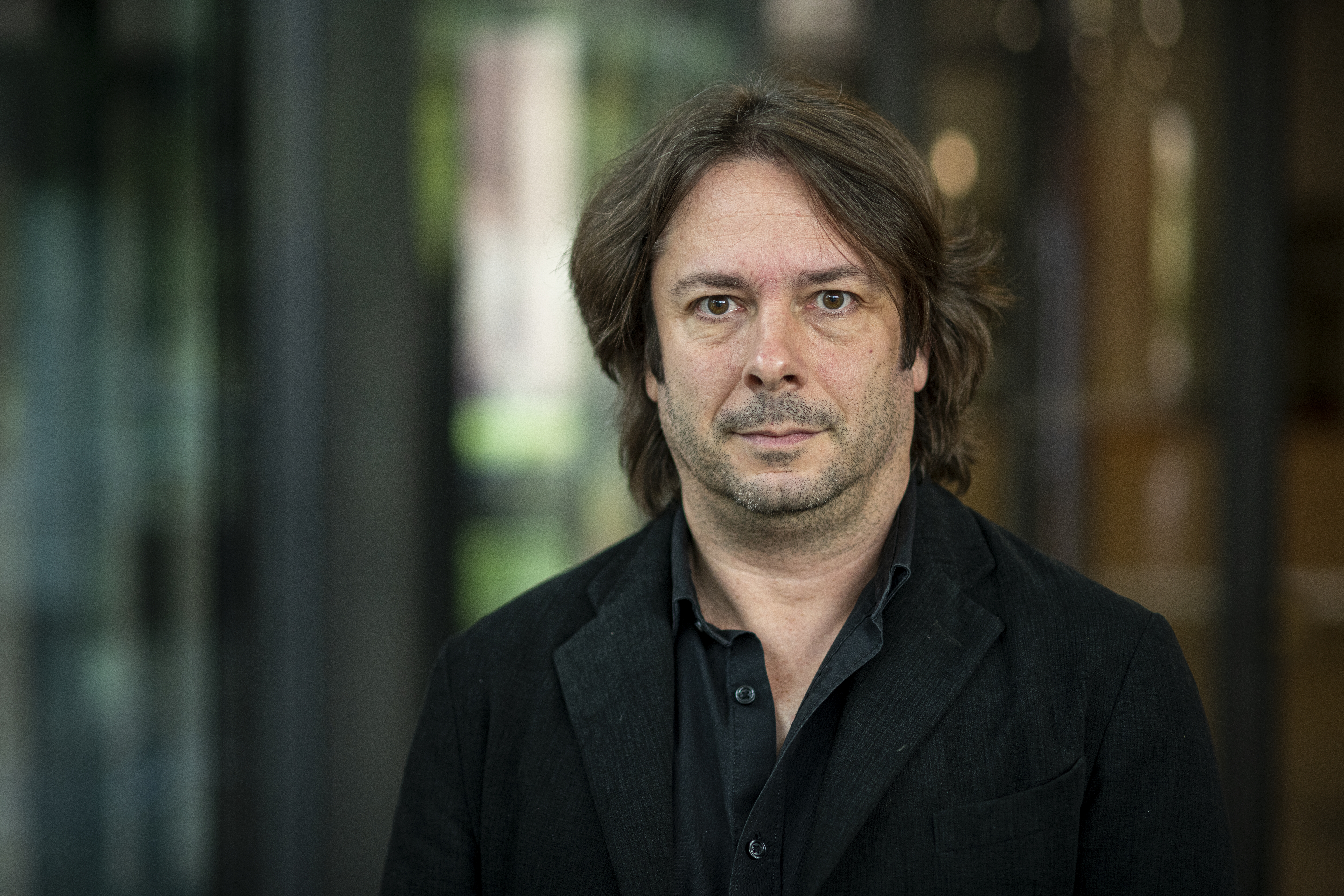 Photo: Sebastian Wiedling/UFZ
Photo: Sebastian Wiedling/UFZ
Dr. Violeta Stojanovska is a Senior Scientist in the Department of Environmental Immunology at the Helmholtz Center for Environmental Research-UFZ in Leipzig. She received her medical degree from the Ss. Cyril and Methodius University in Skopje in 2010. Upon completion of her medical studies, she pursued the medical and pharmaceutical master studies at the University of Groningen and obtained her master´s degree at 2013. She continued her research career as a doctoral student at the Department of Obstetrics and Gynecology at the University Medical Center Groningen. In 2018 she obtained her PhD title and continued her postdoctoral training at Otto-von Guericke University in Magdeburg. Her current scientific focus is on the development of 3D models of placenta, specifically trophoblast spheroids and organoids and how environmental chemicals affect placental morphology and functionality.
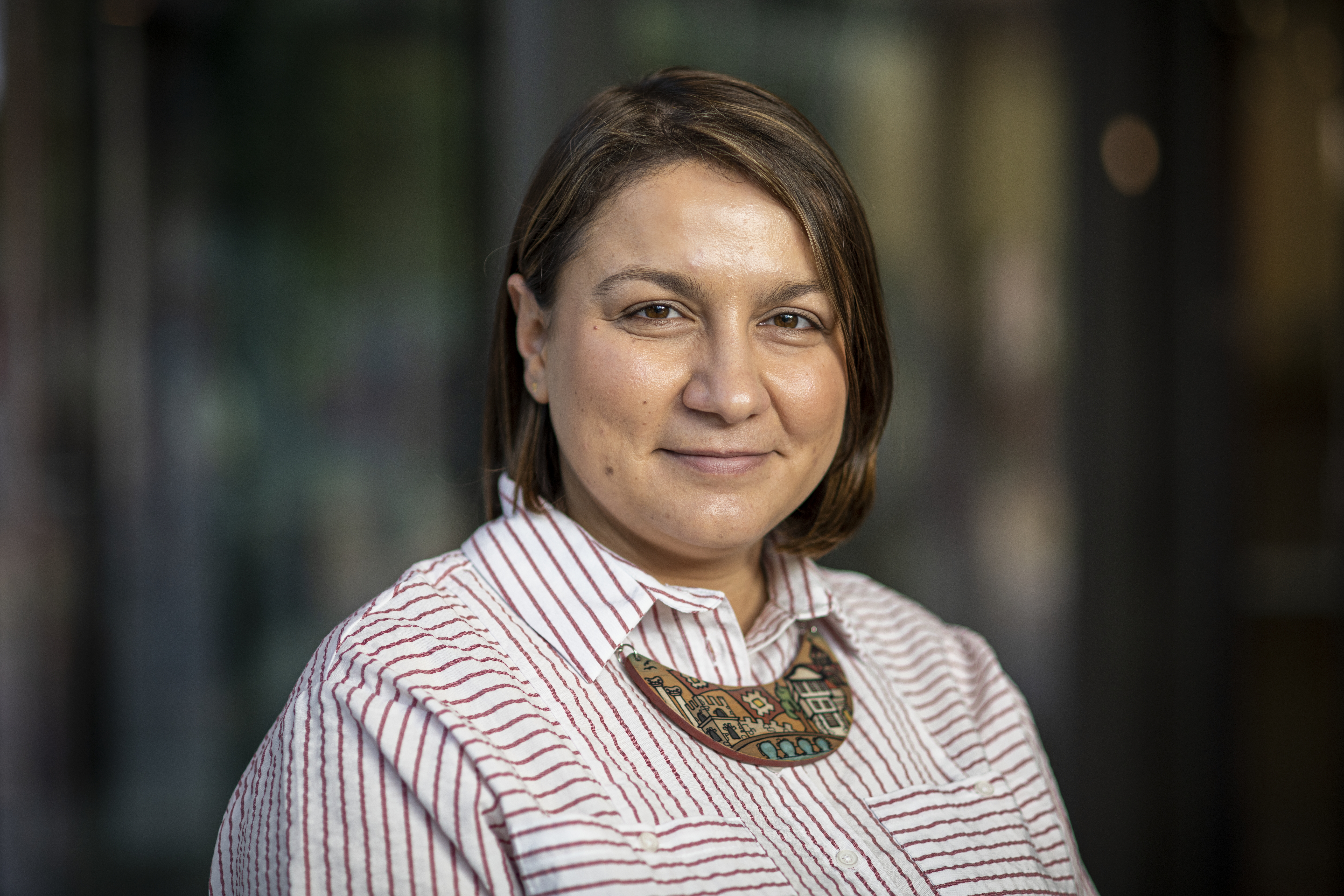 Photo: Sebastian Wiedling/UFZ
Photo: Sebastian Wiedling/UFZ
Dr. Gunda Herberth is a scientist and topic coordinator in the Department of Environmental Immunology at the Helmholtz Centre for Environmental Research-UFZ, Leipzig. Here she leads the Department's longitudinal cohorts LiNA (Influence of prenatal lifestyle factors and environmental exposure on the allergy risk of newborns; prospective mother-child cohort) and LISA/Leipzig site (multicenter prospective German child cohort on lifestyle factors, immune system development and allergy). After studying biology in Mainz, Finland and Tübingen, she completed her doctoral thesis at the Charité and the TU Berlin. She joined the Helmholtz Center for Environmental Research in 2004 after her postdoc at the German Rheumatism Research Centre and the start-up company metGen Pharmaceuticals, Berlin. In the Department of Environmental Immunology at the UFZ, she was a postdoc, working group leader, deputy and acting department head. Her research work has always focused on immunological issues. The establishment and application of new immunological methods in both cohorts and in vitro studies help her to understand the influence of environmental factors such as EDCs on the human immune system. Her aim is to identify the factors that shape the immune system in early childhood or even prenatally, leading to the development of immune system-related diseases.
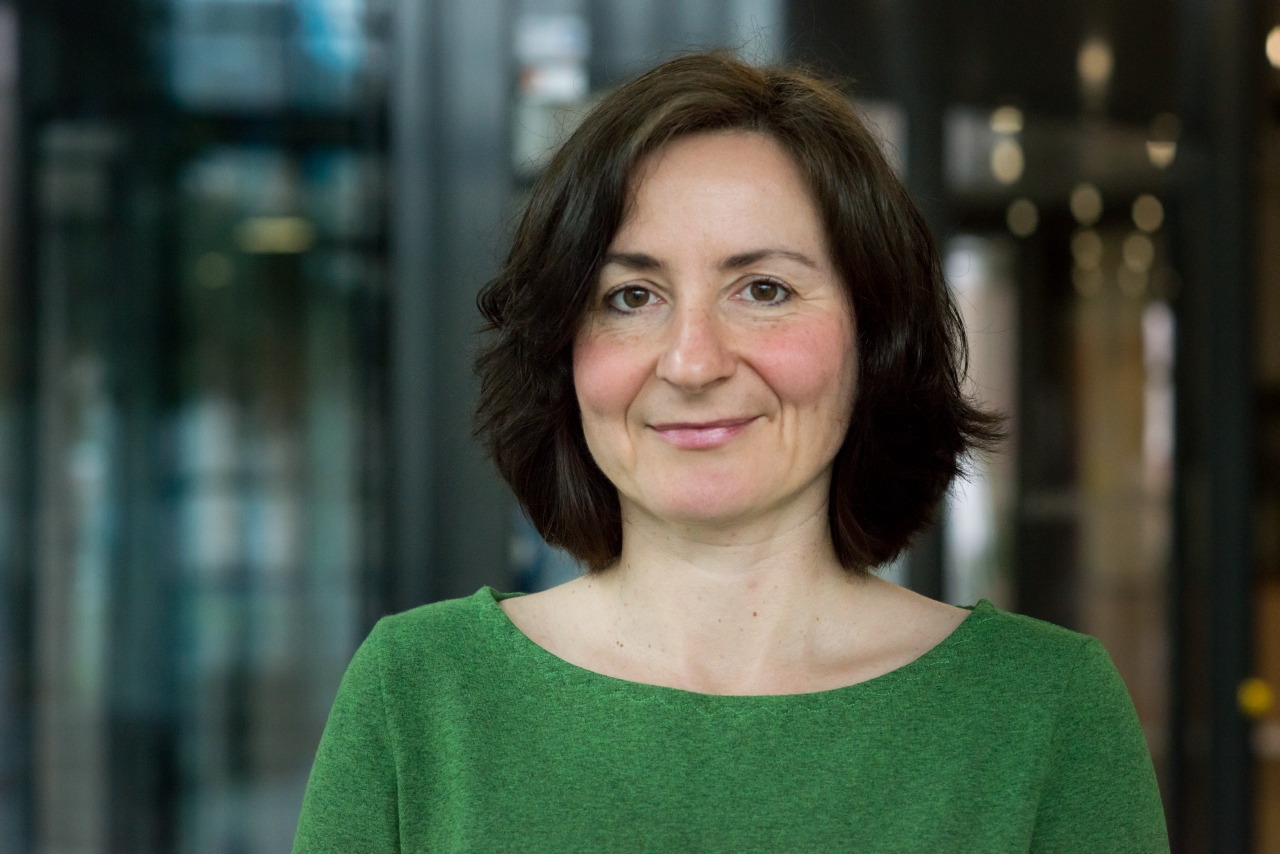 Photo: Sebastian Wiedling/UFZ
Photo: Sebastian Wiedling/UFZ
Dr. Kristin Schubert is an Emmy Noether group leader since 2024 and heads the Toxicoproteomics group within the Department of Molecular Toxicology at the Helmholtz Centre of Environmental Research – UFZ Leipzig, a position she holds since 2017. Her scientific career began with a diploma in Biology at Martin-Luther University Halle-Wittenberg in 2009. She then pursed her PhD in Immunology/Rheumatology at the University of Leipzig in 2014, followed by a postdoc position at the Kennedy Institute of Rheumatology, University of Oxford, UK. Her research interests include the characterization of the interplay between adipocytes and macrophages in obesity, particularly in the context of how endocrine-disrupting chemicals affect these interactions. Employing omics techniques, she explores the mode of action of EDCs and investigates post-translational modifications and chemical protein interaction to improve our understanding of the effects of EDC on molecular processes.
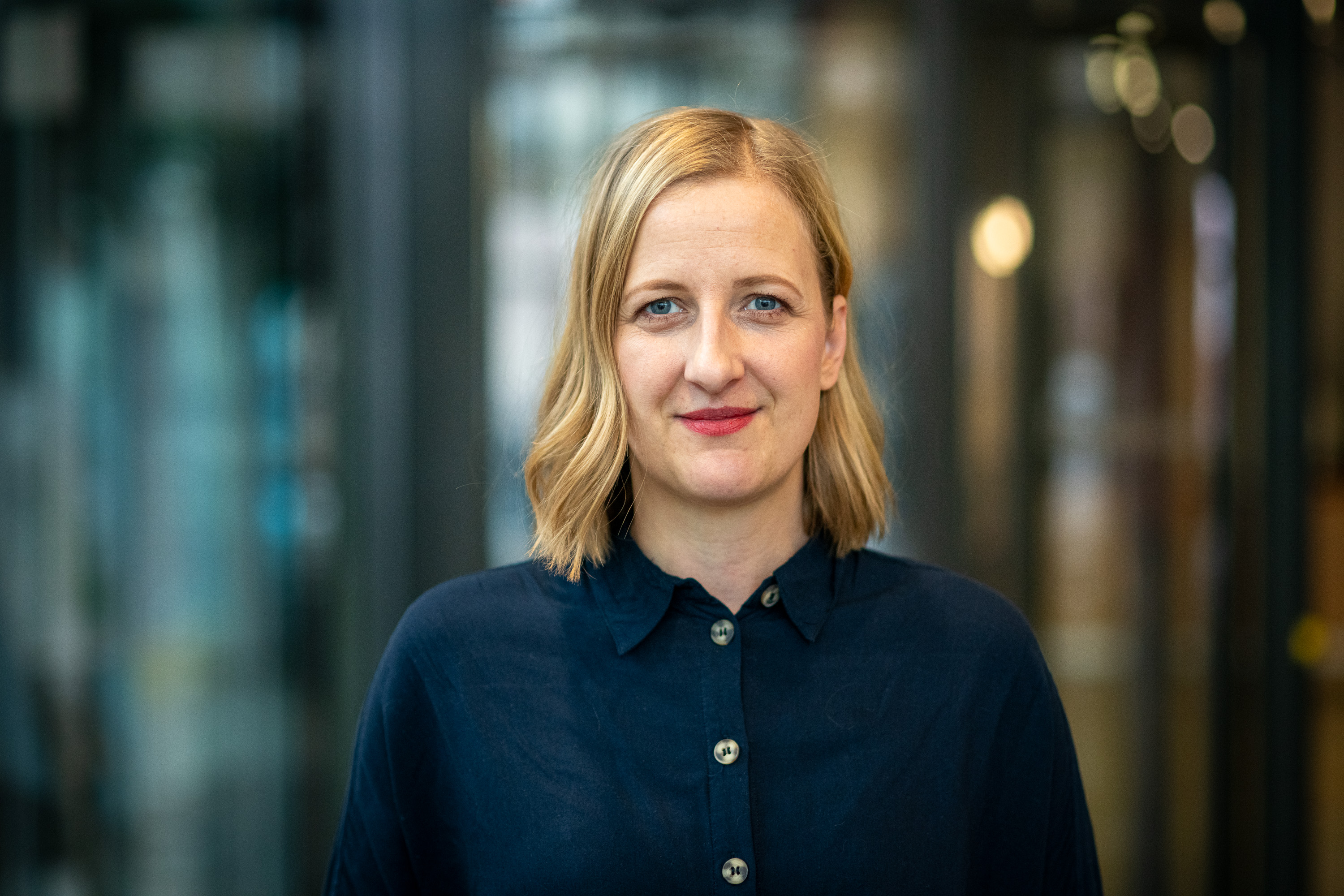 Photo: Sebastian Wiedling/UFZ
Photo: Sebastian Wiedling/UFZ
Prof. Dr. Tamara Tal leads the Molecular Toxicology Group in the Department of Ecotoxicology at the Helmholtz Centre for Environmental Research – UFZ. She also holds a Professorship in Integrated Systems Toxicology in the Medical Faculty at University Leipzig. Prior to joining the UFZ in 2019, Tamara was a Principal Investigator at the United States Environmental Protection Agency in the Office of Research and Development. Tamara has 14 years’ experience using the zebrafish model to develop New Approach Methods, including for Developmental Neurotoxicity and Acute Neurotoxicity. Her team also investigates chemical-microbiome interactions that influence host neurodevelopment. In ENDOMIX, Tamara will develop a high content imaging assay for intestinal inflammation and enteric nervous system development.
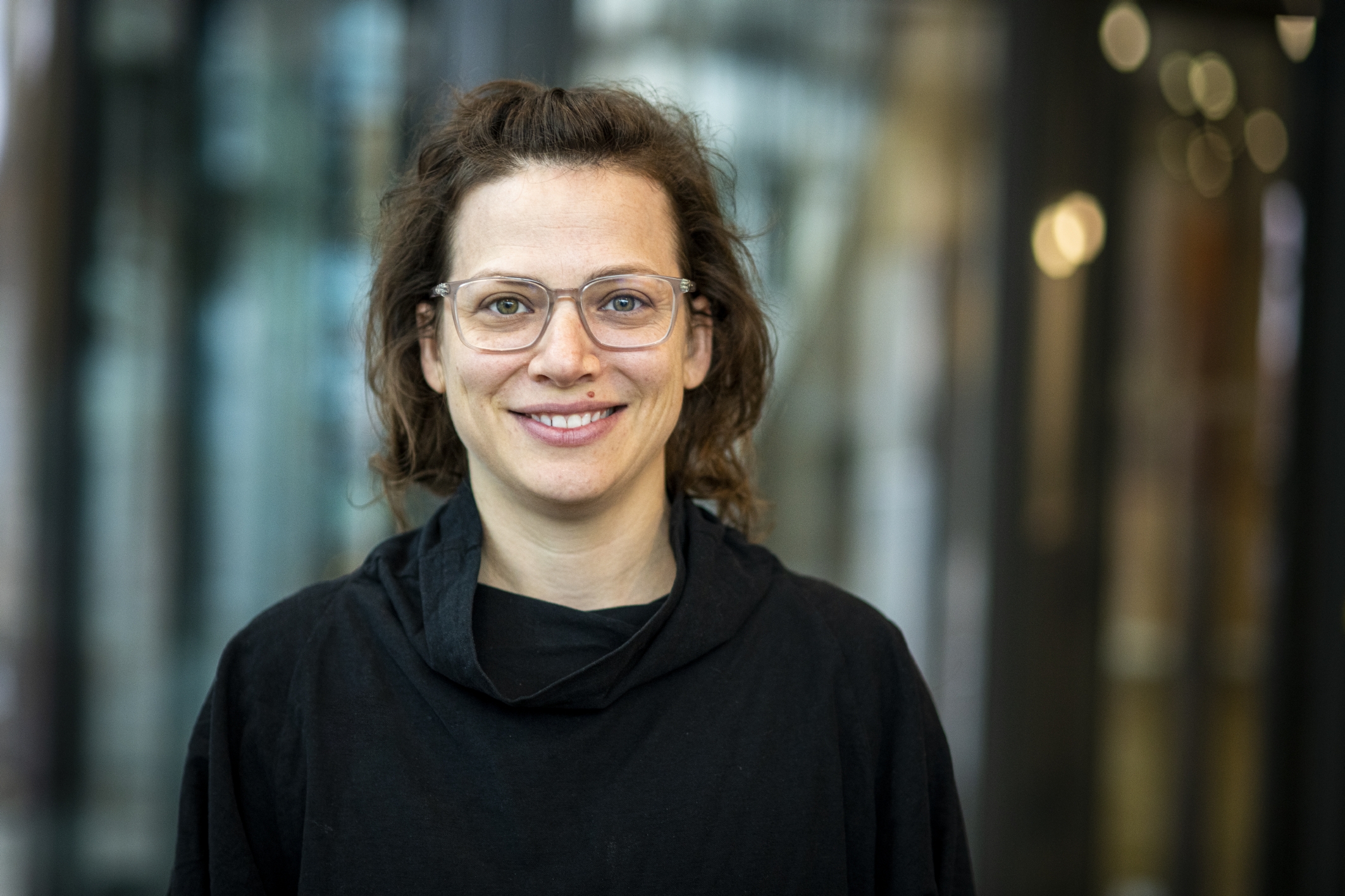 Photo: Sebastian Wiedling/UFZ
Photo: Sebastian Wiedling/UFZ
Georg Braun is holding a Bachelor’s and Master’s degree in Bioanalysis from the Coburg University of Applied Sciences. He is a scientist in the Department of Cell Toxicology at the Helmholtz Centre for Environmental Research – UFZ. His primary research area is the development and application of high-throughput in silico and in vitro tools for the risk assessment of chemicals and mixtures. In his Bachelor thesis he redesigned real-life mixtures from small rivers in Germany and validated the applicability of mixture toxicity models in mammalian cell lines. He also investigated the contribution of the enzyme CYP1A1 to the human hepatic metabolism of new chemical entities in his Master thesis.
His current work is the effect-based human (bio)monitoring of different sample matrices where he is using and developing analysis workflows and mixture toxicity models as well as unbiased extraction methods.
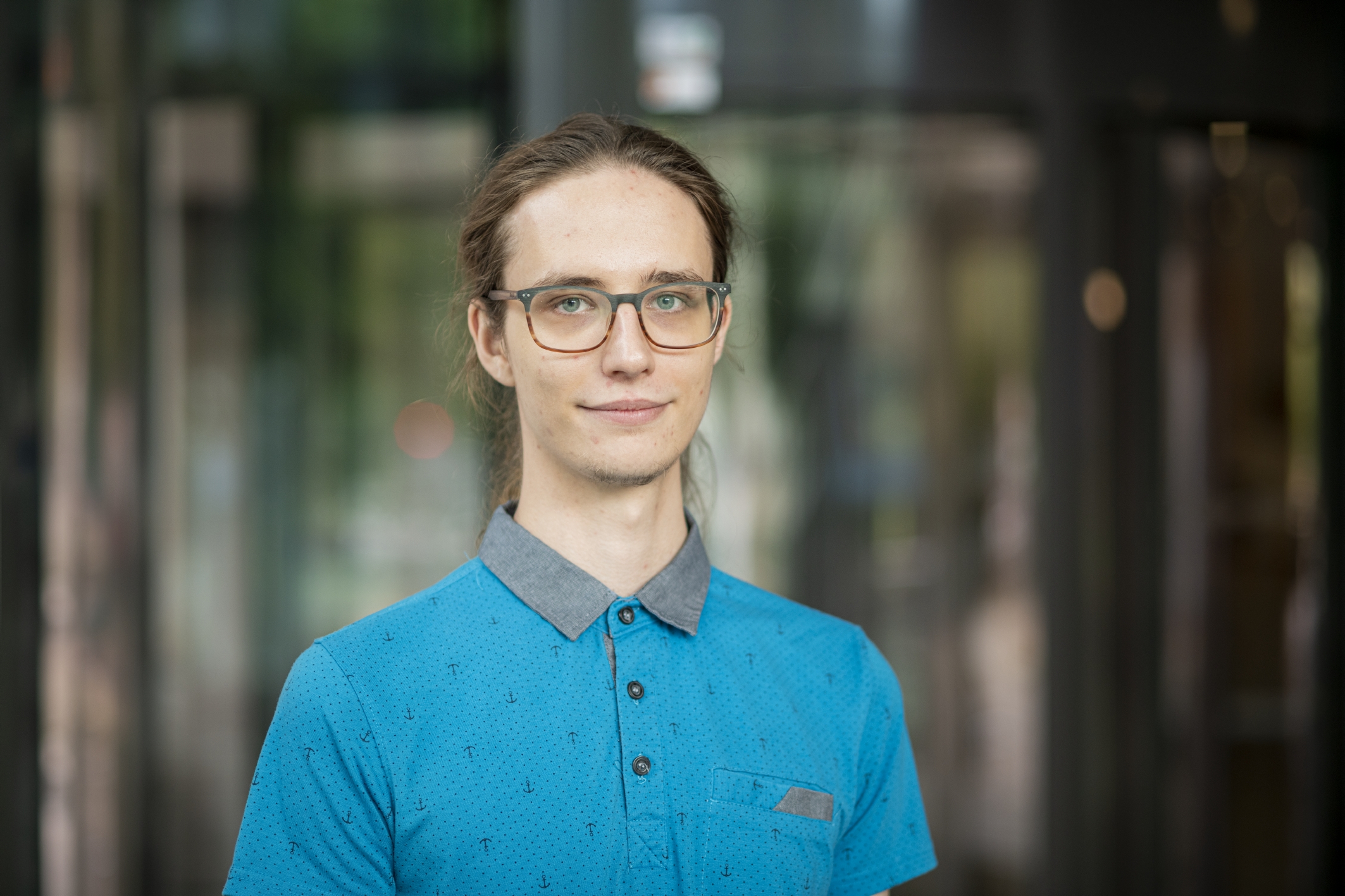 Photo: Sebastian Wiedling/UFZ
Photo: Sebastian Wiedling/UFZ
Sergio Gómez Olarte is a postdoctoral research scientist in the Department of Environmental Immunology at the Helmholtz Centre for Environmental Research – UFZ. He has a strong background in experimental immunology and extracellular vesicles and expertise in developing in vitro disease models. He has studied the immune response and immunogenetics of Chagas Disease, a chronic inflammatory condition caused by the parasite Trypanosoma cruzi. As a Doctoral Researcher at LMU Munich, he designed and generated novel tetrameric proteins to promote T cell activation. His main research interest focused on how environmental factor, such as infection, chemicals and polluters, can disrupt immune homeostasis, thereby inducing chronic inflammation, autoimmunity or allergy.
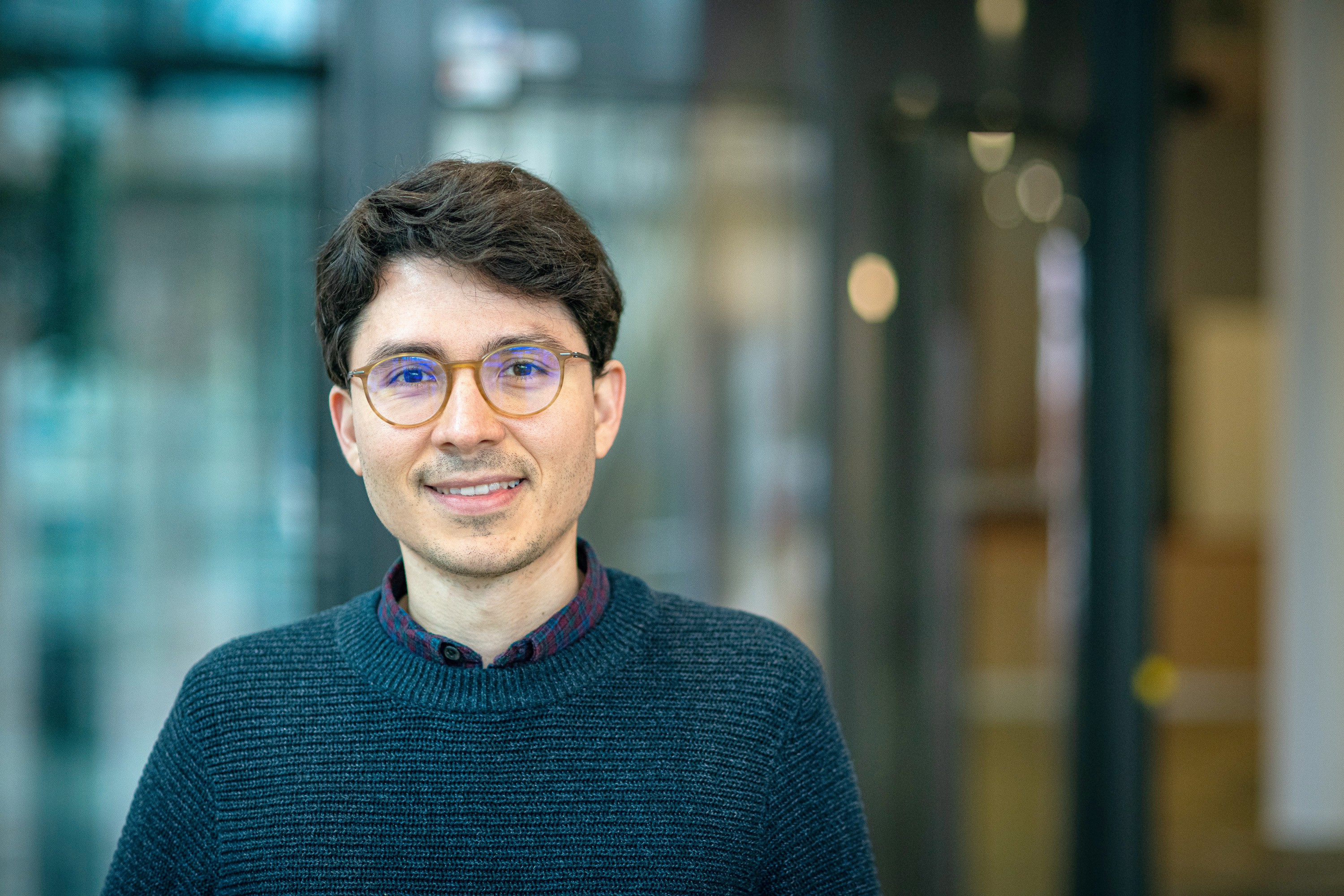 Photo: Sebastian Wiedling/UFZ
Photo: Sebastian Wiedling/UFZ
Júlia Castro-Neves graduated from the University of Coimbra in Portugal with a Bachelor's degree in Biology and a Master's degree in Cellular and Molecular Biology, specializing in Biomedicine. She embarked on her journey with the ENDOMIX project team as a PhD candidate at the Department of Environmental Immunology at the Helmholtz Centre for Environmental Research – UFZ, Leipzig, Germany. She is mainly focused on investigating the effects of the exposure to endocrine disruptor on the immune system of pregnant women and how it may influence pregnancy outcomes.
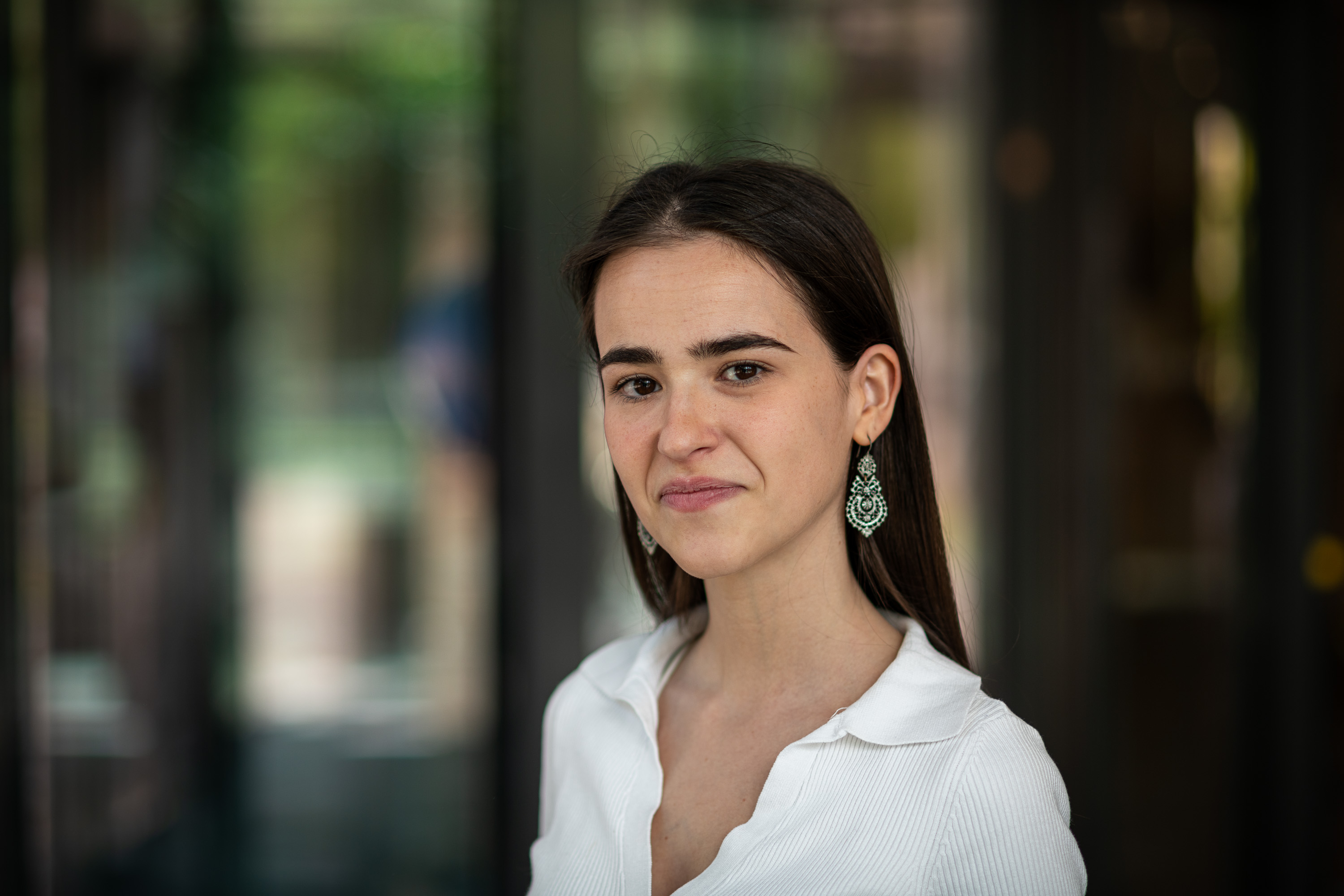 Photo: Sebastian Wiedling/UFZ
Photo: Sebastian Wiedling/UFZ
Verena Mailänder is a pharmacist with a background in Immunology and started recently as a PhD candidate at the Department of Environmental Immunology at the Helmholtz Centre for Environmental Research – UFZ. She completed her pharmacy studies at Philipps University Marburg, including a year abroad at King's College London. Continuing her academic journey, Verena pursued a Master's degree in Immunology at Otto von Guericke University Magdeburg, where she gained laboratory experience during her time at the University of British Columbia in Vancouver, Canada. With a desire to merge her pharmaceutical knowledge with immunological research, Verena eagerly joined the ENDOMIX project, focusing on investigating the effects of chemical mixtures on 3D models, including barrier models, spheroids, and organoids.
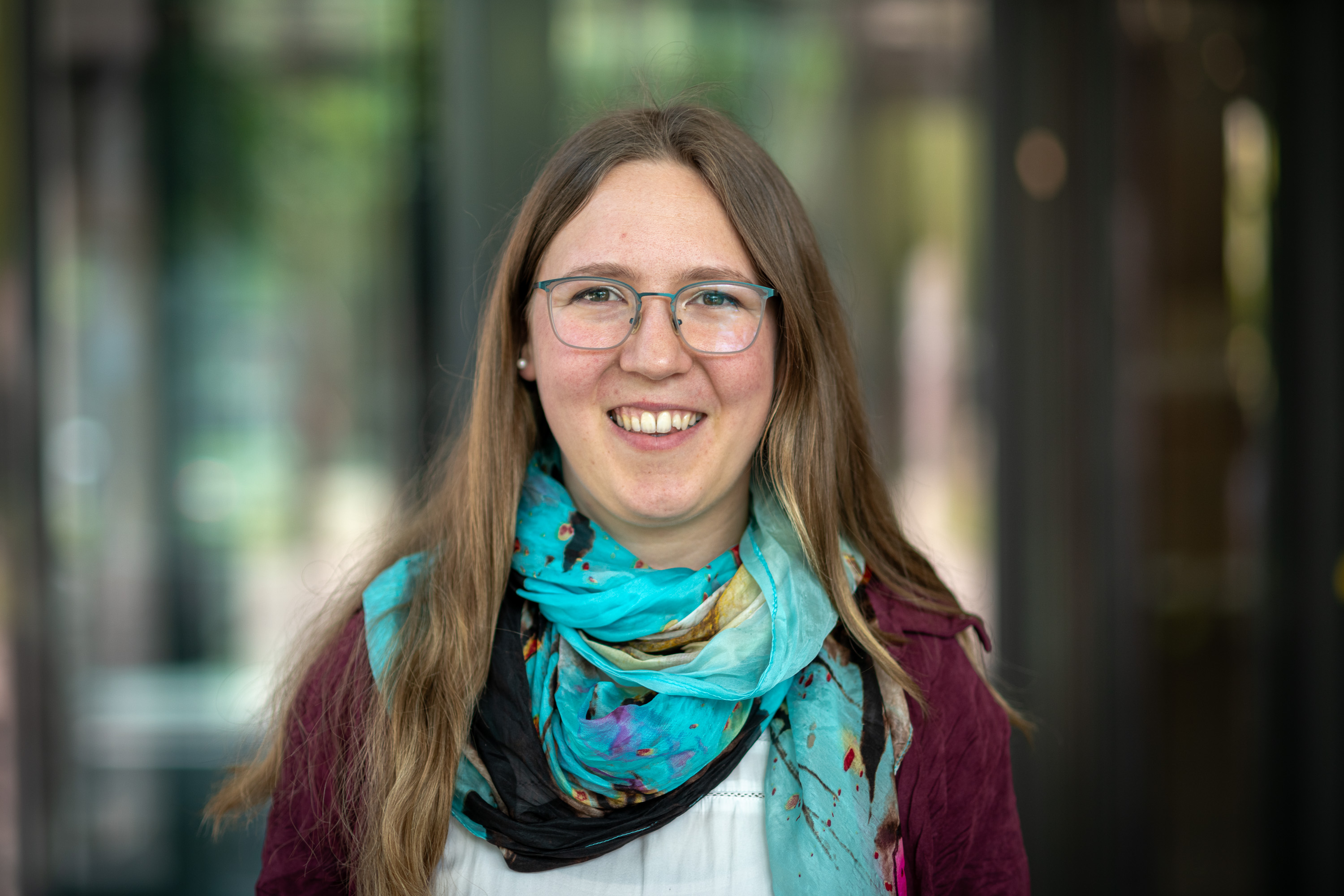 Photo: Sebastian Wiedling/UFZ
Photo: Sebastian Wiedling/UFZ
Thi Anh Mai Pham is a scientific project coordinator in the Department of Environmental Immunology at the Helmholtz Centre for Environmental Research – UFZ. She holds a Master’s degree in Biochemistry from the Technical University of Munich and in Global Health from the Karolinska Institute, respectively. Before joining the UFZ in 2024, Mai worked as a research assistant at the Institute for Tropical Medicine, University of Tübingen. There, among other responsibilities, she coordinated projects, activities and student exchange within the PAN ASEAN Coalition of Epidemic and Outbreak Preparedness (PACE-UP) Global Health Center. Her primary interest lies in bridging the gap between research and practice to address global health challenges.
 Photo: Sebastian Wiedling/UFZ
Photo: Sebastian Wiedling/UFZ
